| | CMEP Weekly Bulletin: UN Agency for Palestinian Refugees Faces Funding Crisis A look at funding crises, human rights conversations, and more news in this week’s bulletin. Image: FILE - A bag of foodstuffs provided by the U.N. agency for Palestinian refugees (UNRWA) lies in a cart as Palestinians collect food aid following a cease-fire reached after an 11-day war between Gaza's Hamas rulers and Israel, in Gaza City, May 22, 2021. (AP Photo/John Minchillo, File) CMEP’s Bulletin is a weekly round-up of news from the Middle East and represents an array of perspectives on the issues we cover. CMEP does not necessarily agree with all the views expressed in the articles, and they do not speak on CMEP’s behalf. | | | |  | Image: FILE - A bag of foodstuffs provided by the U.N. agency for Palestinian refugees (UNRWA) lies in a cart as Palestinians collect food aid following a cease-fire reached after an 11-day war between Gaza's Hamas rulers and Israel, in Gaza City, May 22, 2021. (AP Photo/John Minchillo, File) | | | UN agency for Palestinian refugees faces funding crisis AP News “The head of the U.N. agency for Palestinian refugees said Tuesday (November 30) it was unable to pay its 28,000 employees on time this month because of a major funding crisis, warning of potential cuts in vital services to millions of people amid a global pandemic. UNRWA runs schools, clinics and food distribution programs for millions of registered Palestinian refugees across the Middle East, mainly the descendants of Palestinians who fled or were driven out of what is now Israel during the 1948 war surrounding its creation. The 5.7 million refugees mostly live in camps that have been transformed into built-up but often impoverished residential areas in the Israeli-occupied West Bank, east Jerusalem and Gaza, as well as Jordan, Syria and Lebanon.” | | | | | | | | 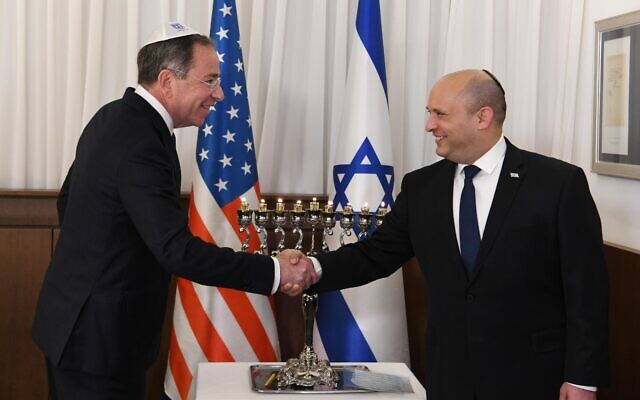 | Image: US Ambassador to Israel Thomas Nides, left, meets with Prime Minister Naftali Bennett at the Prime Minister's Office in Jerusalem, December 5, 2021. (GPO/Amos Ben-Gershom) | | | Bennett meets new US ambassador, cheers Israel’s return to being bipartisan issue
Times of Israel “Prime Minister Naftali Bennett met Sunday (December 5) with new US Ambassador to Israel Thomas Nides, thanking the envoy for the Biden administration’s efforts to restore Israel as a bipartisan issue in Washington. Though there was no mention of Iran and its nuclear program in an official statement from Bennett’s office featuring his remarks, the prime minister appeared to indirectly refer to the issue in his comments to Nides by linking it to the story of the eight-day Hanukkah festival, the last night of which was marked as the two men met at the Prime Minister’s Office in Jerusalem.” | | | | | | | | 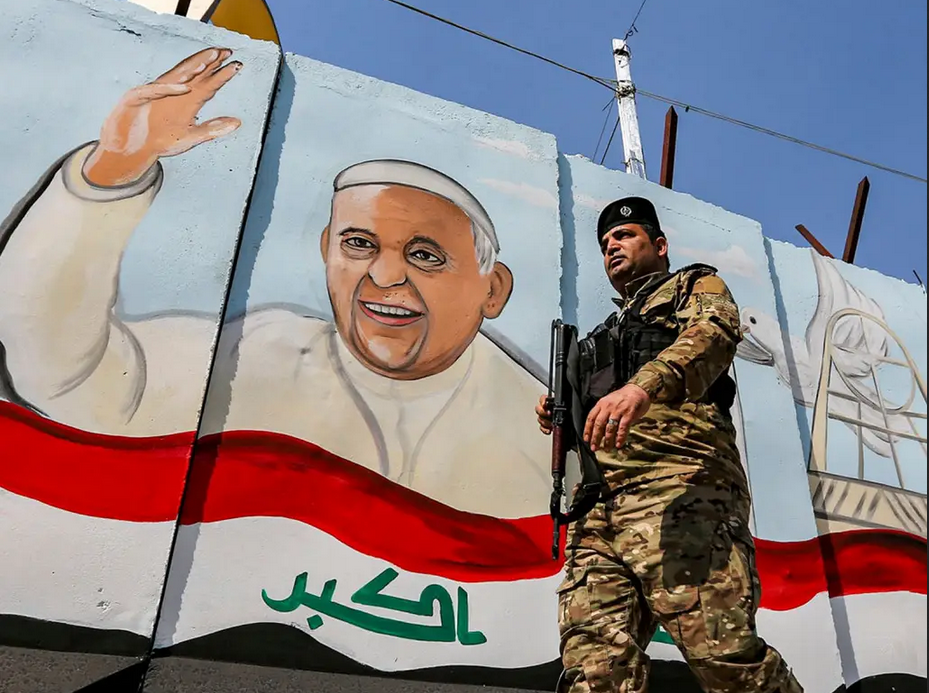 | Image: An Iraqi soldier walking past a mural depicting Pope Francis next to an Iraqi national flag drawn on a blast wall outside the Syriac Catholic Church of Our Lady of Deliverance in Baghdad, last March. (Sabah Arar/AFP) | | | Christianity is vanishing from the Middle East. This reporter documents its decline
Haaretz “Di Giovanni visited four areas – Iraq, the Gaza Strip, Syria and Egypt – and interviewed people representing a spectrum of denominations, from Copts to Catholics. She is a Christian herself and prayed with some of the people she met, including at a Mass in a bombed-out church in Qaraqosh, Iraq’s largest Christian city. In general, she says, she wanted to focus on people that she felt ‘most directly needed to have their voices and oral histories recognized.’” | | | | | | | | | | | | | |  | CMEP Statement mentioned by UN: CMEP's October statement made it into the NGO Action Newsletter on the Question of Palestine from the United Nations. "Churches for Middle East Peace also published a statement welcoming the Biden Administration's opposition to recent actions of the Israeli Government, including its opposition to settlement expansion." | | | | |  | Recent Podcast: CMEP’s Executive Director talks peace and politics in the Middle East with Alexis Busetti on the “That Makes Total Sense” podcast. The conversation around the topic is nuanced and complex, still Mae and CMEP challenge and encourage Christians to believe that “…Justice can prevail. Peace is possible.” | | | | | 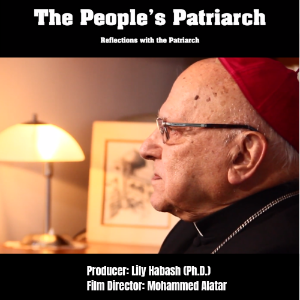 | Film Screening: CMEP’s Catholic Advisory Council were pleased to host a screening of the short film, “The People's Patriarch”, about the life, ministry, and advocacy of His Beatitude Michel Sabbah followed by remarks from His Beatitude as well as a Question & Answer time with him. You can view the film here and the Q&A with CMEP at the link below. | | | | | | | | Year End Giving As you're finalizing all your end of the year gifts, we're hoping you keep CMEP in mind. All donations are tax deductible and you can rest easy knowing that you're giving to an organization with a high score on Charity Navigator. Justice can prevail. Peace is possible. But we can't do it without your help. | | | | | | | | | | 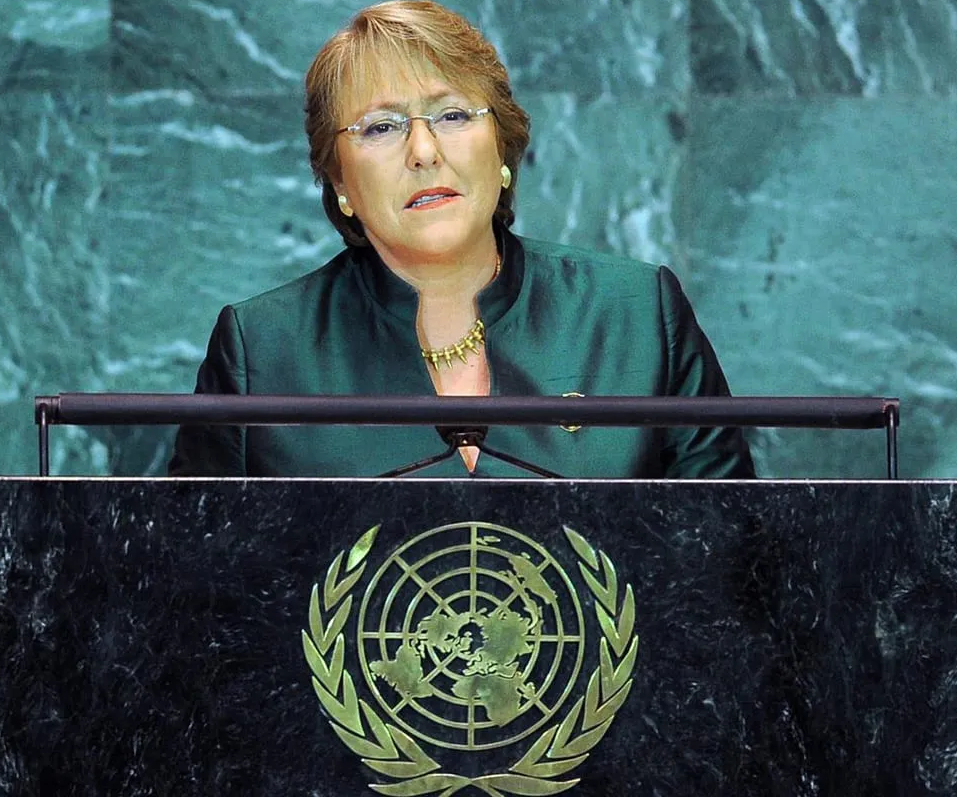 | Image: Michelle Bachelet, United Nations High Commissioner for Human Rights, addresses the United Nations General Assembly in New York. (Twitter) | | | UN official: Human rights situation in occupied Palestinian territories 'disastrous'
Middle East Monitor “UN High Commissioner for Human Rights, Michelle Bachelet, described, on Tuesday (December 7), the human rights situation in occupied Palestinian territory as ‘disastrous.’ As she was briefing the UN Committee on the Exercise of the Inalienable Rights of the Palestinian People, in Geneva, she argued: ‘This clearly also has damaging impact on prospects for peace and sustainable development for Israel, as well as the surrounding region.’ She added: ‘No matter how long the road has been, 'never-ending' cannot be an acceptable description for any situation in which human rights are violated and abused.’" | | | | | | | | 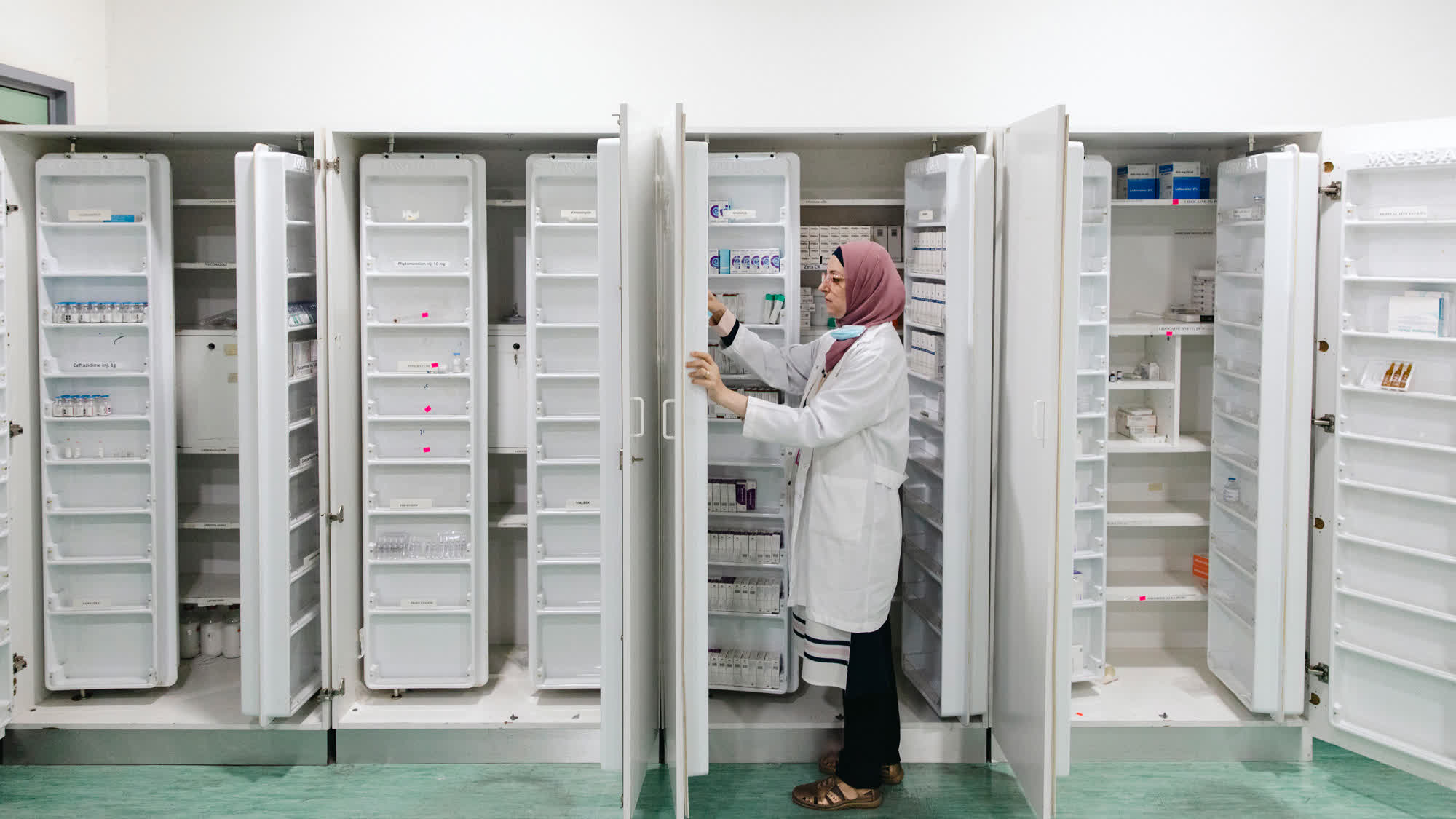 | Image: A pharmacy employee looks through mostly empty medicine cabinets at the Rafik Hariri University Hospital in Beirut. (CNN) | | | How greed fueled Lebanon’s deadly milk and medicine shortage
CNN “Like the vast majority of Lebanon’s population, her material losses have multiplied at breakneck speed since the country’s financial disaster began two years ago. The family’s already modest earnings have been whittled down to almost nothing. Rampant shortages have deprived her of the ability to adequately feed her four children. Even as local television stations screened images of large amounts of stockpiled infant formula at the end of August, Haydar says she couldn’t find any to buy for her seven-month-old son. She says she resorted to feeding him hot water mixed with sugar." | | | | | | | | 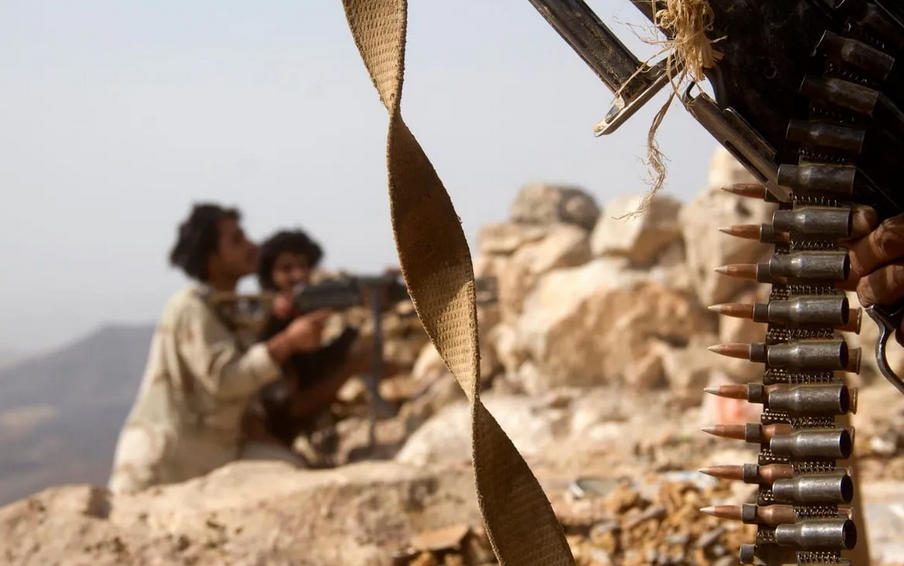 | Image: Yemeni tribesmen hold positions during fighting against the Houthis in Marib city on 27 June 2016. (Abdullah Al-Qadry/AFP/Getty Images) | | | Ten months on, fighting rages in Yemen's Marib
Middle East Monitor “Ten months have passed since the military escalation between Houthi rebels and government forces over Yemen's central province of Marib, located 173 km north-east of the capital, Sana'a, Anadolu News Agency reports. Since February, Iran-aligned Houthi rebels have stepped up attacks to take control of the oil-rich Marib province, one of the most important strongholds of the legitimate government and home to the headquarters of Yemen's Defence Ministry." | | | | | | | | CMEP's Bulletin is a weekly round-up of news from the Middle East and represents an array of perspectives on the issues we cover. CMEP does not necessarily agree with all the views expressed in the articles, and they do not speak on CMEP's behalf. | | | | Churches for Middle East Peace (CMEP)
110 Maryland Ave NE, Suite 311 | Washington, District of Columbia 20002
(202) 543-1222 | info@cmep.org | | | | | | | | | |